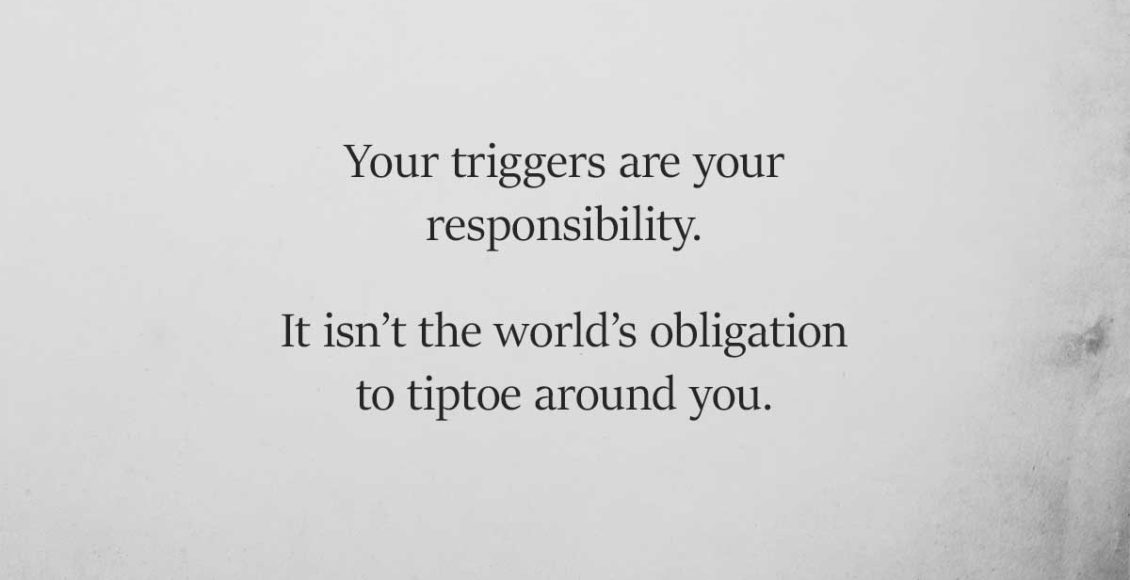Emotional triggers are those extremely-reactive forces inside you that become activated by someone else’s comments or behavior.
When you are triggered, you may either retreat within yourself and simply feel pain or anger or respond aggressively, which you will most likely regret later on. Your reaction is so powerful because your mind is trying to fight off a harmful feeling that has surfaced.
Your emotional triggers are injuries that need tending to.
They have their roots in fear which has no basis in reality. You don’t want to live your life while being triggered all the time, especially if you are a highly sensitive and empathic person.
In order to reduce the effects of emotional triggers, start to thoughtfully examine and remove any beliefs that have been passed down to you by your family or society such as “I’m not intelligent enough” or “I’m too sensitive.” You must carefully start working on the parts of yourself that feel flawed in addition to your self-doubts about your appearance or your ability to find a partner. Once you manage to recover from a trauma or false belief, you will feel completely free to enjoy life as you should. And as a result, you will never become as easily drained or triggered.
Use the following strategies to start healing your emotional triggers.
1. Know your triggers
Identify your main emotional triggers which make you most angry and shaken off-balance.
For example, when a person makes fun of your size or the way you look. Or if you don’t make enough money as you wish you would. Or maybe you don’t feel worthy of love and a lasting relationship? Jot them all down on a piece of paper to get a clear picture of where you need to start your healing.
2. Identify their origins
Where did all these triggers come from? For instance, were you called fat or ugly a lot in school? Did people tell you that you’re a loser and don’t have what’s needed to make it in life? Or maybe your parents didn’t care for you enough, so you grew up feeling empty of love? Pinpointing the origin of your triggers will allow you to know yourself better.
3. Reconfigure the negativity
Start reprograming the trigger that has the least emotional power. Remind yourself that this is not the truth and that you are lovable and mort than capable to achieve anything you set your mind to.
4. Act confidently, even if you don’t fully feel like it
As you embark on the journey to recovery, you may need to start acting “as-if” when you haven’t properly integrated a new positive belief yet. And that’s completely fine. For example, just saying “I disagree” to a person. Or “I am capable of doing this job” (even if you’re not fully confident in your skills). Sometimes you have to force out a more confident behavior for it to eventually manifest into reality.
5. Consider therapy or coaching
Professional guidance can be incredibly useful in locating the roots of your triggers and helping you solve the problem. You may be overtaken by immense anger or sadness that your family never believed you would amount to something, so you never learned to believe in your own abilities. Bringing forth and letting out those feelings allows you to heal the triggers and move upward where your true power awaits you.
Healing your triggers will set you free because you will not be put off or saddened by other people’s inconsiderate comments. The more you work towards healing your emotional triggers, the more confident and emotionally stable you will be.
We hope that this advice has helped you gain the confidence you need to put your emotional triggers under control.
Let us know your thoughts on the topic by joining the conversation in the comments and please share this article if you know others who may need such help.



